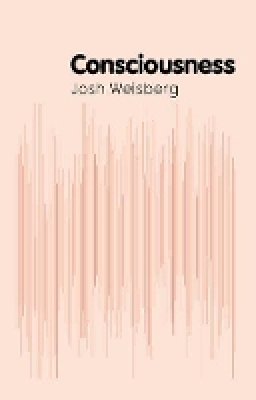
Stock image for illustration purposes only - book cover, edition or condition may vary.
Description for Consciousness
Hardback. Each of us, right now, is having a unique conscious experience. Nothing is more basic to our lives as thinking beings and nothing, it seems, is better known to us. But the ever-expanding reach of natural science suggests that everything in our world is ultimately physical. Series: Polity Key Concepts in Philosophy. Num Pages: 184 pages. BIC Classification: HPK; HPM; JMT. Category: (P) Professional & Vocational. Dimension: 223 x 136 x 19. Weight in Grams: 344.
Each of us, right now, is having a unique conscious experience. Nothing is more basic to our lives as thinking beings and nothing, it seems, is better known to us. But the ever-expanding reach of natural science suggests that everything in our world is ultimately physical. The challenge of fitting consciousness into our modern scientific worldview, of taking the subjective “feel” of conscious experience and showing that it is just neural activity in the brain, is among the most intriguing explanatory problems of our times.
In this book, Josh Weisberg presents the range of contemporary responses to the philosophical problem of consciousness. The basic philosophical tools of the trade are introduced, including thought experiments featuring Mary the color-deprived super scientist and fearsome philosophical “zombies”. The book then systematically considers the space of philosophical theories of consciousness. Dualist and other “non-reductive” accounts of consciousness hold that we must expand our basic physical ontology to include the intrinsic features of consciousness. Functionalist and identity theories, by contrast, hold that with the right philosophical stage-setting, we can fit consciousness into the standard scientific picture. And “mysterians” hold that any solution to the problem is beyond such small-minded creatures as us.
Throughout the book, the complexity of current debates on consciousness is handled in a clear and concise way, providing the reader with a fine introductory guide to the rich philosophical terrain. The work makes an excellent entry point to one of the most exciting areas of study in philosophy and science today.
In this book, Josh Weisberg presents the range of contemporary responses to the philosophical problem of consciousness. The basic philosophical tools of the trade are introduced, including thought experiments featuring Mary the color-deprived super scientist and fearsome philosophical “zombies”. The book then systematically considers the space of philosophical theories of consciousness. Dualist and other “non-reductive” accounts of consciousness hold that we must expand our basic physical ontology to include the intrinsic features of consciousness. Functionalist and identity theories, by contrast, hold that with the right philosophical stage-setting, we can fit consciousness into the standard scientific picture. And “mysterians” hold that any solution to the problem is beyond such small-minded creatures as us.
Throughout the book, the complexity of current debates on consciousness is handled in a clear and concise way, providing the reader with a fine introductory guide to the rich philosophical terrain. The work makes an excellent entry point to one of the most exciting areas of study in philosophy and science today.
Product Details
Format
Hardback
Publication date
2014
Publisher
John Wiley and Sons Ltd United Kingdom
Number of pages
184
Condition
New
Series
Polity Key Concepts in Philosophy
Number of Pages
184
Place of Publication
Oxford, United Kingdom
ISBN
9780745653440
SKU
V9780745653440
Shipping Time
Usually ships in 15 to 20 working days
Ref
99-15
About Josh Weisberg
Josh Weisberg is Associate Professor of Philosophy at the University of Houston.
Reviews for Consciousness
A lively and readable tour of the main philosophical approaches to consciousness. For anyone new to the topic, or for those wanting an update on the latest ideas, Weisberg is an enthusiastic and knowledgeable guide. Alex Byrne, MIT Consciousness is a tour de force. It covers all the major theories and important empirical findings about consciousness in an inviting, accessible way, drawing penetrating, often novel, connections among the various positions and controversies. The result is a balanced, revealing map of current work on consciousness that makes significant contributions to current discussion. This is essential reading for anybody interested in consciousness and it will surely become a standard in both undergraduate and graduate courses. David Rosenthal, CUNY
